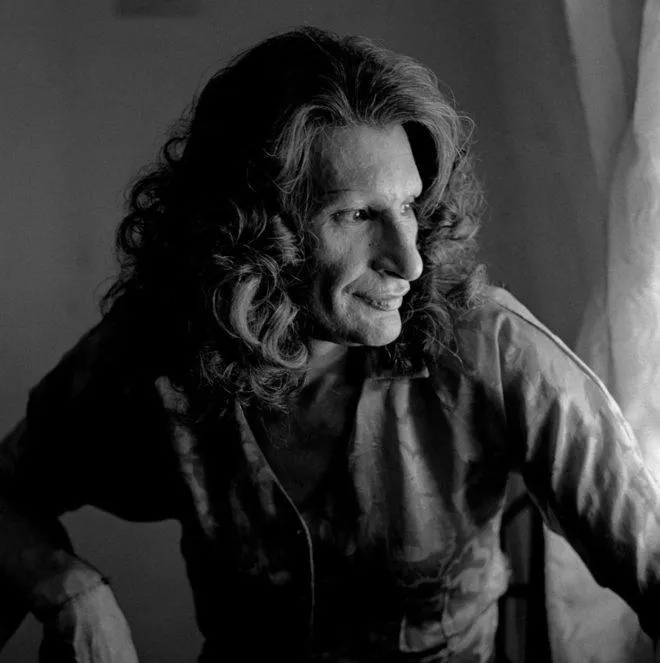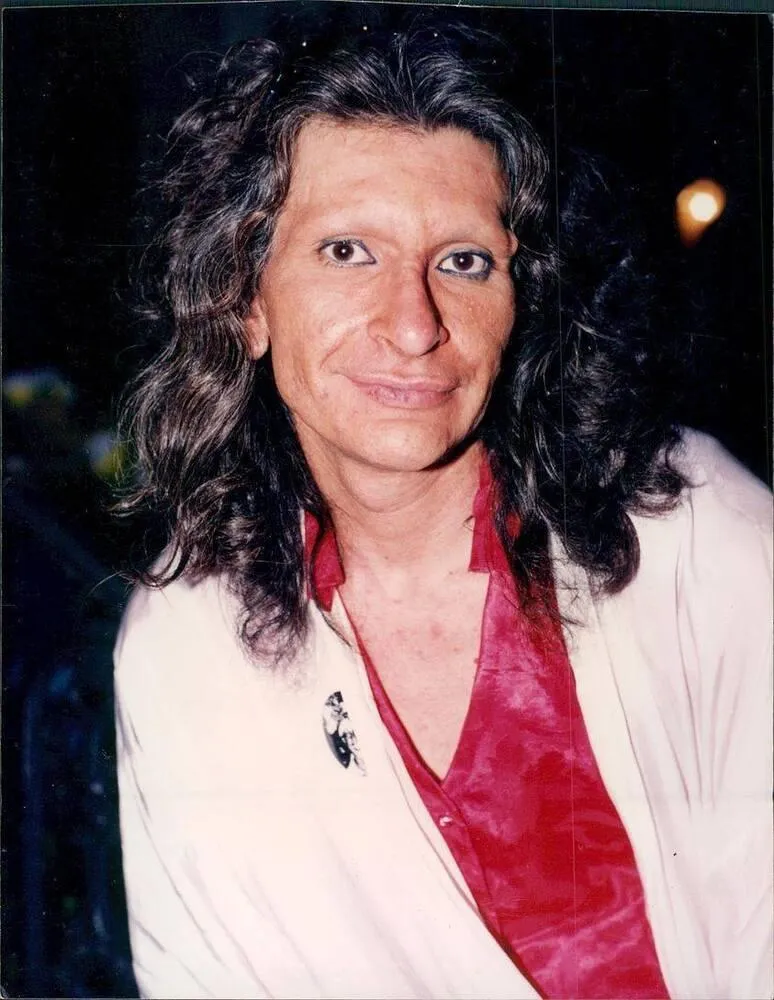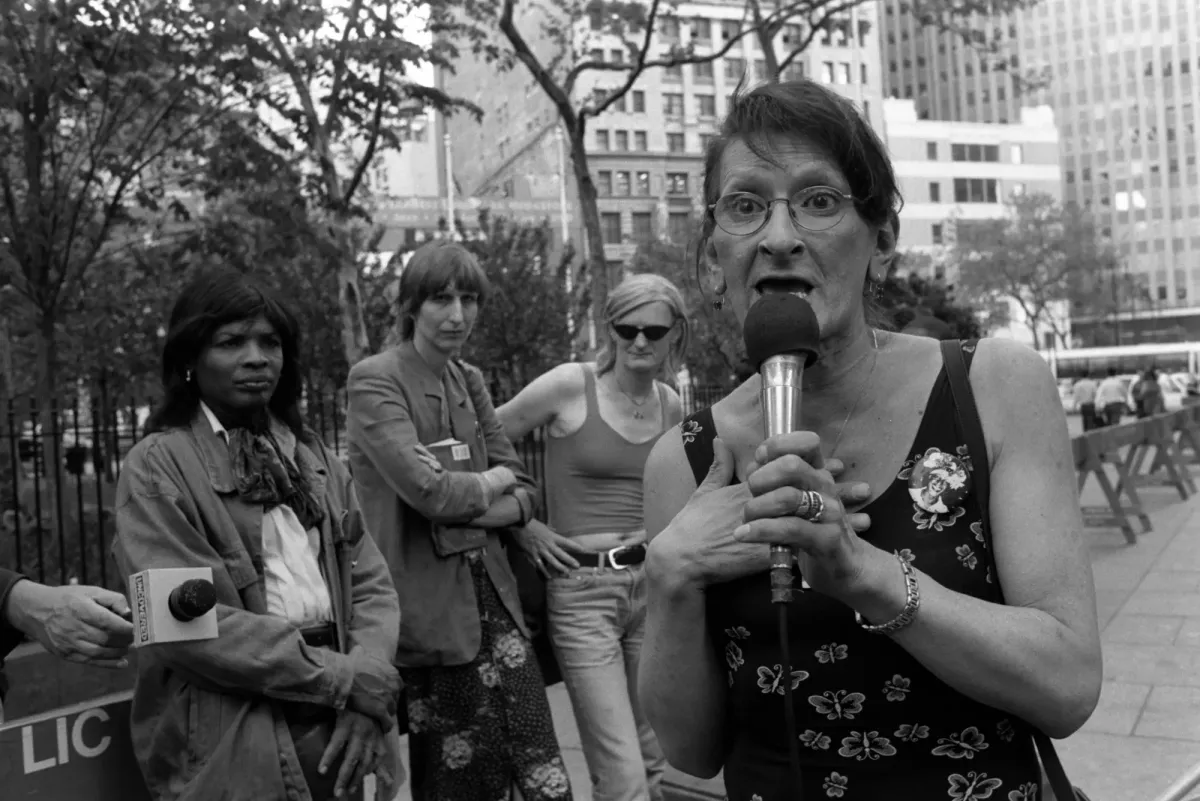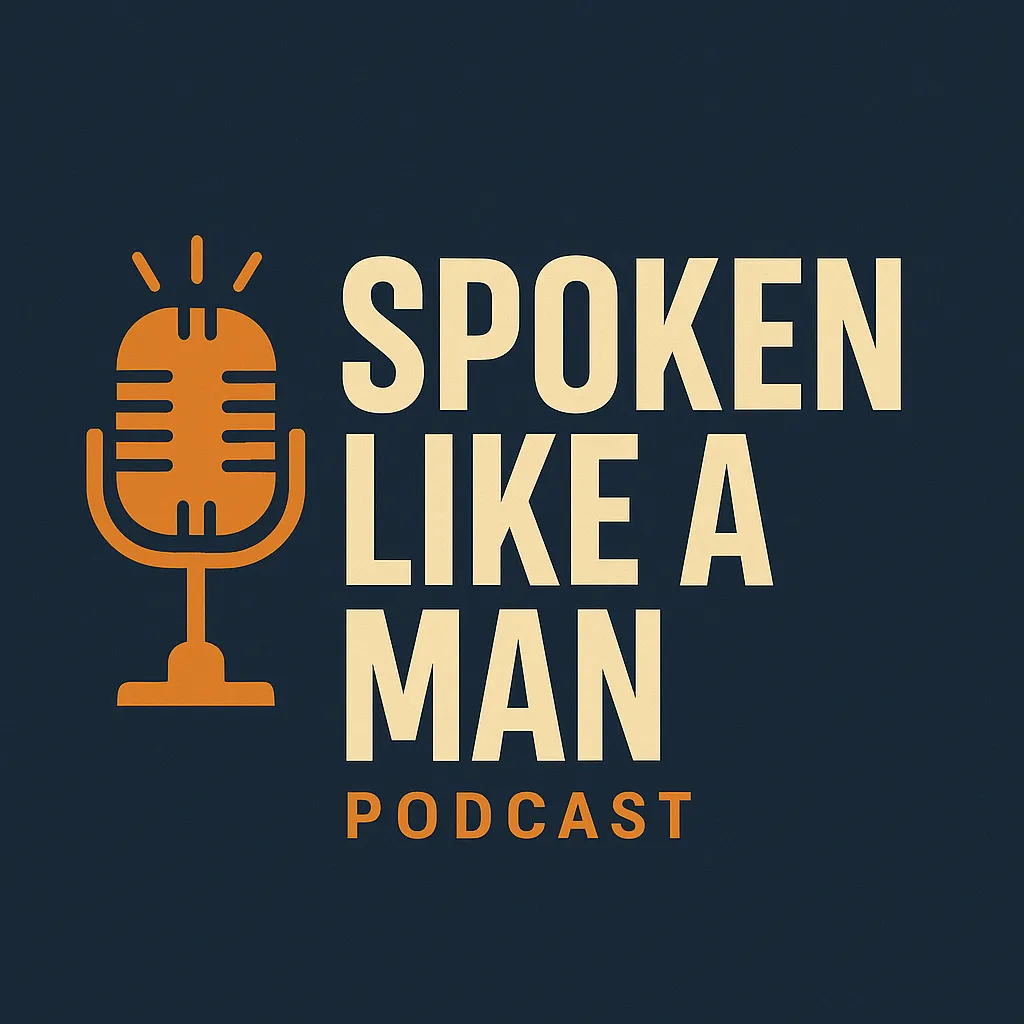




Identity: Biological male
Self-Identification: Drag queen, gay person, street transvestite
Orientation: Gay
Known for: Co-founder of S.T.A.R. with Marsha P. Johnson, activist for homeless queer youth; later became a symbolic figure for trans activism, though this is disputed by both Rivera’s own words and contemporaries
Early Life and Background
Born Ray Rivera in New York City to Puerto Rican and Venezuelan parents, Sylvia's mother died by suicide when he was a child. Raised by a conservative grandmother who rejected his feminine behavior, he was kicked out at age 11.
He lived on the streets and survived through sex work, becoming part of New York’s underground drag and gay scene. The name Sylvia became part of his identity within the drag queen and “street queen” culture — but he never identified as a transsexual in early interviews.
“I left home at 10 and started dressing in drag and hustling. That’s how I survived.”
— Sylvia Rivera, 1995 interview, Transgender Tapestry
Stonewall Uprising
Sylvia later claimed to have been present during the first night of the Stonewall riots in June 1969. However, this is disputed by multiple eyewitnesses, including:
Fred Sargeant, co-founder of the first Pride parade
Craig Rodwell, organizer and gay rights pioneer
Sylvia’s own accounts were inconsistent. At times he said he was “watching from the edge” or even sleeping in a nearby park. He was not listed in any arrest records from the uprising.
Nonetheless, he was visibly involved in activism immediately following the riots and was closely associated with the community response.
Post-Stonewall Activism
In 1970, Sylvia and Marsha P. Johnson co-founded S.T.A.R. (Street Transvestite Action Revolutionaries), a group that:
Sheltered homeless gay youth, drag queens, and street kids
Operated a communal living space they called “S.T.A.R. House”
Struggled with poverty and was short-lived
Sylvia was known for his fiery, confrontational speeches. He often clashed with more mainstream gay activists who focused on sexual orientation rather than gender expression.
Did Sylvia Identify as Transgender?
No — he explicitly denied being transsexual, and was resistant to being labeled.
Never underwent hormone therapy or gender reassignment
Described himself as a “gay man in a dress” or a drag queen
Rejected modern labels like “transgender” even in his later years
His involvement in trans activism was on behalf of others, not a reflection of his own identity. He used “transgender” only occasionally in the late 1990s, more as a political umbrella than a personal label.
Later Years and Legacy
Sylvia battled addiction and homelessness but returned to activism later in life. He pushed for inclusion of gender-nonconforming and poor queer people in mainstream LGBTQ+ movements, which he believed had become elitist.
He died of liver cancer in 2002. After his death, many organizations began referring to him as a “trans woman of color” — a narrative that contradicts his own words and the historical record.
Why Sylvia Rivera Matters
Co-founded S.T.A.R., which gave shelter and hope to drag queens and street youth
Advocated for marginalized queer voices, especially those left out by mainstream gay rights groups
Is often mischaracterized as a trans pioneer, despite openly rejecting that label
A case study in how historical revisionism has reshaped the Pride narrative
Works Cited
Transgender Tapestry. “Interview with Sylvia Rivera,” 1995.
Source of the quote: “I left home at 10 and started dressing in drag and hustling.” Used to verify Rivera’s early experiences, gender expression, and survival through sex work.
Encyclopedia Britannica. “Sylvia Rivera.” britannica.com
Confirms identity as a drag queen and activist. Details co-founding of S.T.A.R., early life, struggles with homelessness, and tensions within the LGBTQ+ movement.
Biography.com. “Sylvia Rivera Biography.” biography.com
Used to verify childhood details, grandmother’s rejection, early street life, and STAR founding with Marsha P. Johnson.
The Queer Bible. “Interview with Sylvia Rivera.” queerbible.com
Firsthand reflections on Rivera’s identity, labels, activism, and conflicting views about her place in the Pride movement.
Spiked. “The myth of Marsha P. Johnson and Stonewall.” spiked-online.com
Includes remarks from Fred Sargeant disputing the narrative that Sylvia Rivera was present on the first night of Stonewall, supporting eyewitness challenges.
